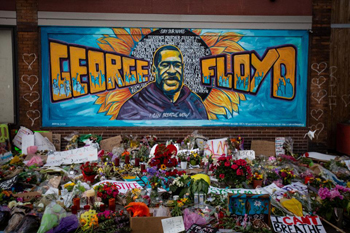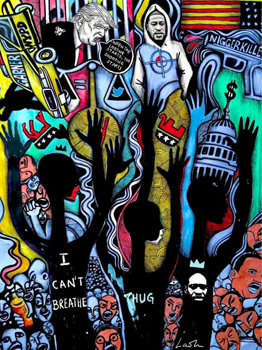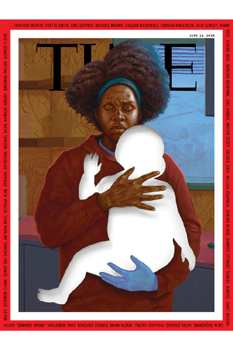For Sunday June 14, 2020
Lectionary Readings (Revised Common Lectionary, Year A)
Exodus 19:2-8a
Psalm 100
Romans 5:1-8
Matthew 9:35-10:8, (9-23)
In his book, Tokens of Trust: An Introduction to Christian Belief, former Archbishop of Canterbury, Rowan Williams, tells the story of a young Jewish woman named Etty Hillesum. Hillesum was in her twenties when the Germans occupied Holland. She was not a conventionally religious person, but between the years of 1941 and 1943, as she watched her world descend into nightmare, she became deeply aware of God’s hand on her life. Imprisoned in the transit camp at Westerbork (before being shipped to the gas chambers of Auschwitz), Etty wrote these words: “There must be someone to live through it all and bear witness to the fact that God lived, even in these times. And why should I not be that witness?”
Williams describes Hillesum’s commitment this way: She decided to occupy a certain place in the world, a place where others could somehow connect with God through her. She took responsibility for making God credible in the world. She took responsibility for God’s believability.
I’ve been thinking about these phrases all week. Making God credible in the world. Taking responsibility for God’s believability. How do you feel, reading them? What visceral reactions, if any, do they trigger? Alarm? Excitement? Longing? Fear? Does it ever occur to us that these phrases might describe our vocation as followers of Christ? Is it possible that we are called to make belief in the kingdom of God credible for the world we live in? Not just when belief is easy, but also — and especially — when belief feels impossible?
If you’re like me, you’re reeling from the events that have rocked the United States over the past two weeks. I’m sure I’m not alone in lacking words to express the frustration and sorrow I feel. Once again, we must mourn a black man’s senseless murder at the hands of abusive police. Once again, we must confront the deep, insidious racism that poisons this nation’s core. Once again, we are called to repent of our history, grieve with our African-American brothers and sisters, and insist on the justice that is now centuries overdue. Once again, we are summoned to render God’s good news credible in a dark hour.
 |
In our Gospel reading this week, Jesus commissions his twelve disciples to liberate and enliven the “harassed and helpless." Seeing the multitudes of “sheep without a shepherd,” Jesus is deeply moved, and so he tells his disciples, “Go.” Go and proclaim the good news of the kingdom. Go and cure the sick, raise the dead, cleanse the lepers, and cast out demons. Go and touch. Go and heal. Go and resurrect. Go and make peace.
Go and render believable the compassion of God.
Needless to say, this commissioning is for us as well. Are you scared yet? Hang on — Jesus has more to say. After explaining to the disciples what their task is, he offers them some appalling operating instructions: “You received without payment; give without payment.” “Take no gold, or silver, or copper in your belts.” “Take no bag, or two tunics, or sandals, or a staff.” And (saving the zinger for last): “I’m sending you out like sheep in the midst of wolves, so be as wise as serpents and as innocent as doves. You will be dragged before governors. You will be handed over to councils and flogged. You will be hated by all because of my name.”
Um, really? Let’s see if I have this straight:
- Prioritize those who have nothing. Go to those who have no one to advocate for them, no one to hear them, no one to attend to their needs. Go to the harassed, the mistreated, the oppressed, and the exhausted. Knock on their doors, and place yourselves at their service. Humbly accept their hospitality. Learn the art of dependence. Do not live and minister above or apart from the people you wish to help — live among them. Engage them. And do so deeply.
-
Choose poverty, simplicity, and vulnerability. Carry no weapons. Stockpile no resources. Have no back-up. Abandon your egotism. Do not parade in like a savior, basking in pomp and circumstance. Lead instead with quietness, gentleness, curiosity, and humility. Insofar as it depends on you, keep, make, and share the peace. Remember that power has been given to you for one reason, and one reason only: so that you can give it away.
- Don’t be foolish. Be wise. Be attentive. Listen. Know the complexities of the world in which you move. Make every effort to understand what’s happening beneath the surfaces. Be pure of heart, but don’t revel in ignorance, flatten reality, or mistake naïveté for faith.
- When you’ve done all of the above — in other words, when you get all of this just right — expect life to get pretty grim. Know that lots of folks will distrust you. Understand that many well-meaning people will yell and scream at you. Expect to get rejected, called out, wounded, beaten. Don’t be surprised when your life gets uncomfortable. This is what success looks like.
- Do not despair. You are not alone. The Spirit of God is with you, and the Spirit will give you the words you need and the courage you lack. Remember, grace abounds, so don’t lose heart. The one who endures to the end will be saved.
Are you scared now? Make no mistake: this is a confrontational Gospel. It’s hard. It’s demanding. It’s offensive. In it, Jesus asks us to surrender absolutely everything for the sake of making God credible to a world that’s convulsing in pain — and he does so without reservation or apology. His harsh-sounding instructions suggest that there will be times when our faith requires us to violate cultural norms, fight uphill battles, and speak dangerous truths to power.
If our overriding priority as Christians is to secure our own comfort, then we cannot follow Jesus. Discipleship will disorient and disrupt us. It will make us the neighborhood weirdos. It will shake things up in our families, churches, and communities. It will expose evils in the status quo we cling to. It will humble us to our knees.
As our reading from the epistle to the Romans so eloquently puts it: “Suffering produces endurance, and endurance produces character, and character produces hope, and hope does not disappoint us.” So often we Christians try to skip straight to hope and hunker down in its promise. Yes, the Church is called to profess hope. But hope is not the same thing as clueless optimism or premature consolation. Hope has no meaning if it's not undergirded by justice. Notice the trajectory: suffering, endurance, character, and THEN hope. The fact that our salvation is free does not mean it comes cheap.
 |
To make God believable here and now is to stand in the hot white center of the world’s pain. Not just to glance in the general direction of suffering and injustice, and then sidle away, but to dwell there. To identify ourselves wholly with those who are aching, weeping, and dying. In the case of America’s longstanding racial crisis, making Christ credible means moving beyond denial, beyond willful ignorance, and beyond the Band-aid approach of “thoughts and prayers.” It means deciding, as grateful followers of a brown man who died at the hands of brutal law enforcement two thousand years ago, that we will not tolerate the demon of racism in our midst for one more generation.
Why does Jesus ask so much of us? Because he gave us so much. “You received without payment. Now give without payment.” Maybe, if we can put aside our reluctance and our fear, we will feel the weight, the power, and — dare I say it? — the glory of this calling. Jesus calls us only to what we were created for. Jesus knows the cure for our brokenness, our malaise, our boredom, our angst. He knows that when we go out into the world in his name, healing what is diseased, resurrecting what is dead, and casting out what is evil, we participate in the transformation of our own souls. What we’re hearing in these days is the very heart of God within us, deep calling to deep, the Spirit crying out on behalf of a world desperate for justice and mercy. Will we listen?
Someone has to live and bear witness to the fact that God lived, even in these times. So ask yourself: Why shouldn’t that witness be me?
Debie Thomas: debie.thomas1@gmail.com





